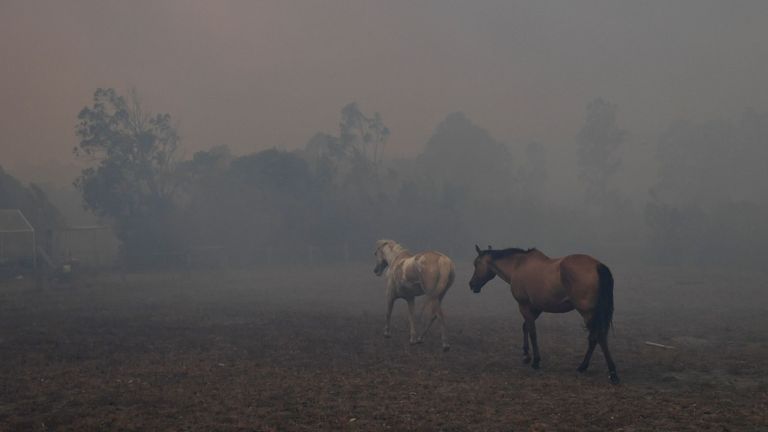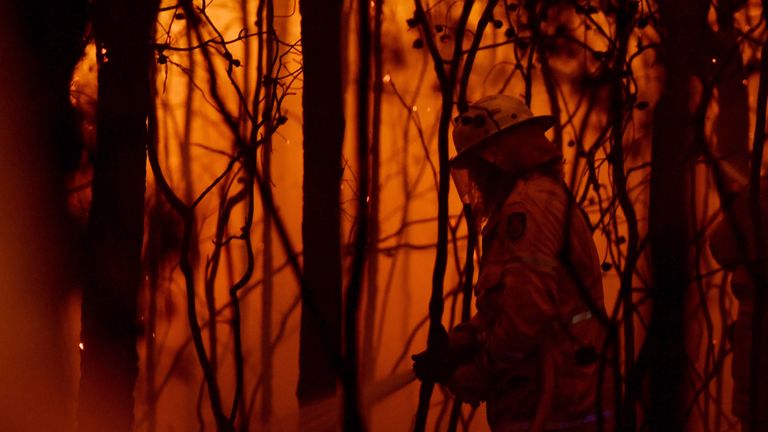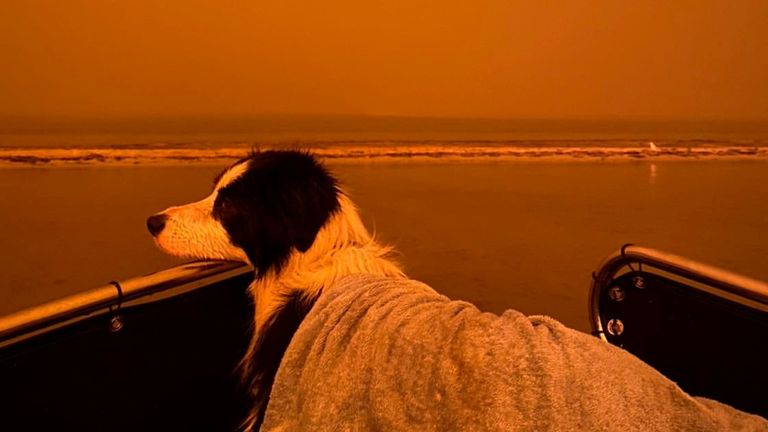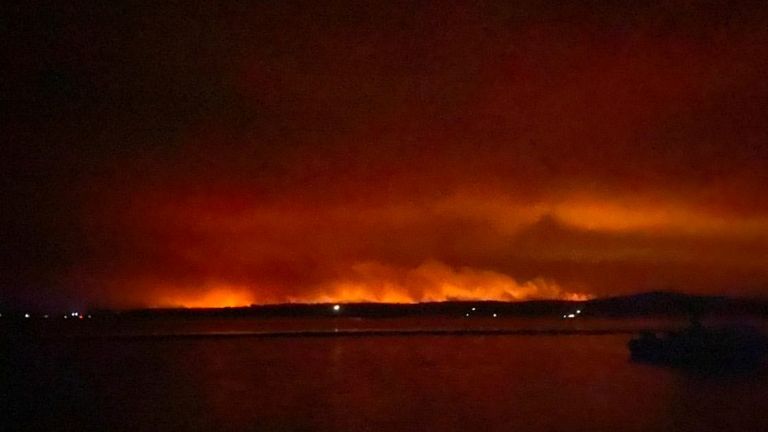Home » World News »
Australia: Firefighters struggle to reach areas cut off by devastating bushfires
Authorities in Australia are struggling to reach some isolated areas to assess damage after one of the bushfire season’s worst days so far.
Cooler conditions on the first day of 2020 gave the country’s eastern coast a chance to count the cost, but many places could not be reached due to damaged roads.
The fires have destroyed about five million hectares, spurred by extremely hot weather and dry lightning strikes on land that has suffered from drought for months or even years.
More than 1,000 homes have been destroyed since the fires started, most of them in New South Wales, Australia’s most populous state.
In New South Wales, there are 112 fires burning – with two described as being at emergency level. More than 2,500 firefighters are working through New Year’s Day in an effort to beat the flames.
Since Monday, 176 homes have been lost in NSW. According to local reports, churches and schools are among the buildings destroyed.
The state’s Rural Fire Service said it would need “several days” to assess the situation, adding: “Widespread power outages on the south coast are impacting communications (and a) number of major roads are likely to remain closed for some time due to hazards.”
Some areas were accessible, and The Sydney Morning Herald reported that the village of Cobargo had lost many older buildings, some dating back to the 1930s.
In nearby Wandella, trees were snapped in half by the strength of the winds and the fire scorched the wool off the backs of sheep. Power had been cut and phone reception was difficult, they reported.
Seven people have died in New South Wales this week, according to Sky News Australia, and a 72-year-old is among those missing, with NSW RFS Commissioner Shane Fitzsimmons saying there is “limited access to the remote area to try to identify and confirm one way or the other the status of that person”.
In the neighbouring state of Victoria four people are listed as missing – but the Australian Associated Press reported that one of these was a man found dead in his home in the town of Buchan, a town in the state’s holiday hotspot of East Gippsland on Wednesday.
In East Gippsland, 300 miles from Melbourne, thousands of people had sought shelter on beaches as flames approached on Tuesday and the main road was cut off.
The sky turned pitch black and then a dark shade of red as people waited, some in boats and others wearing swimming goggles and breathing masks.
Mark Tregellas was among 4,000 people in Mallacoota who spent the night on the beach and said: “The fire just continued to grow and then the black started to descend.
“I couldn’t see the hand in front in my face, and it then it started to glow red and we knew the fire was coming.
“Ash started to fall from the air and then the embers started to come down.
“At that point, people started to bring their kids and families into the water.
“Thankfully, the wind changed and the fire moved away.”
Thousands of people are still stranded in the area and the military has been called in to help with supplies and evacuations. Gas company Esso has also sent a ship and two helicopters to help.
The supply mission is expected to last two weeks and will also include moving firefighters in by helicopter, as roads remain inaccessible.
Photos taken from the air by ABC News showed many of the town’s homes and buildings had been destroyed.
There are still 45 fires burning in Victoria but, despite Wednesday’s cooler weather, Victoria Emergency Commissioner Andrew Crisp warned fire danger remained high and the weather is expected to worsen again by the weekend.
He added: “We have three months of hot weather to come. We do have a dynamic and a dangerous fire situation across the state.”
Meanwhile, much of eastern Australia is struggling with the smoke.
Canberra, the country’s capital, had air quality more than 21 times the hazardous level on Wednesday and satellite pictures showed that the smoke had even travelled far enough to cover most of New Zealand’s South Island.
Australia deals with bushfires every year but this season has been particularly difficult, prompting questions over whether Prime Minister Scott Morrison is doing enough to tackle climate change.
Australia is the world’s largest exporter of coal but Mr Morrison rejected calls last month to curb the lucrative industry.
Source: Read Full Article









